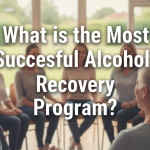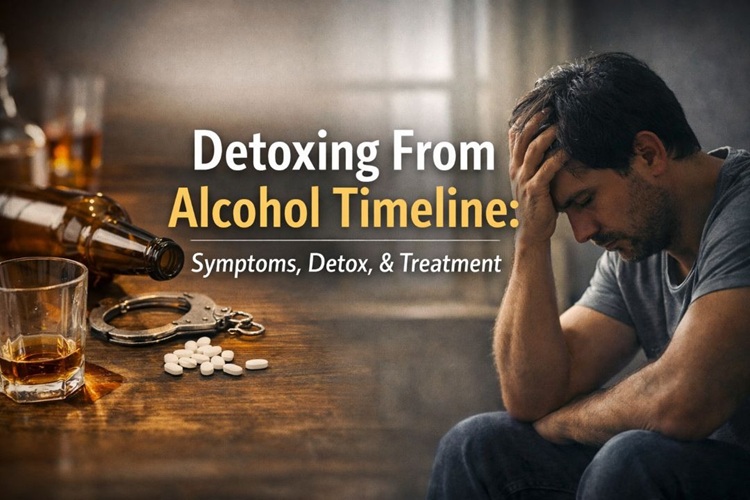Overview
Anxiety disorders can be regarded as one of the most prevalent mental health problems that bother populations all over the world. Anxiety disorders are marked by an overwhelming and unmanageable fear and worry, unlike occasional stress or worry, which leads to the distortion of day-to-day activities in people. Information about the causes, symptoms, and treatment options can make people better approach the issue of anxiety and impact the overall quality of life in a positive way.
What are Anxiety Disorders?
Anxiety disorders are mental illnesses that are marked by the prevalence of fear, worry and apprehension. Unattended, they disrupt work, relationships and everyday life. Long-term effects can only be prevented with early recognition and treatment.
Causes of Anxiety Disorders
There are various causes of anxiety and they may be genetic, psychological, and environmental. Common causes include:
- Family history of anxiety disorders.
- Imbalance in neurotransmitters like dopamine and serotonin.
- High levels of stress or traumatic experiences.
- Coexisting medical problems (e.g., heart disease, thyroid problems, chronic pains).
- Substance misuse or withdrawal from alcohol and drugs.
Symptoms of Anxiety Disorders
The symptoms can be different according to the type and severity, but they usually include:
- Excessive worry or fear
- A nervousness or restlessness.
- Rapid heartbeat or palpitations
- Difficulty concentrating
- Shortness of breath
- Sweating or trembling
- Sleep disturbances
- Digestive issues (nausea, diarrhea, stomach pain)
100% Confidential Support is Available 24/7
No matter what you’re going through, you’re not alone. Our dedicated team is here to provide a safe, judgment-free space where you can talk openly and honestly. Whether you need emotional support, resources, or just someone to listen.
We’re here for you—completely confidential and always respectful of your privacy. Call us today!
Types of Anxiety Disorders
- Generalized Anxiety Disorder (GAD): Chronic, out of control concern over life aspects.
- Panic Disorder: Sudden and intense episodes of fear, chest pain, dizziness, and shortness of breath.
- Social Anxiety Disorder (Social Phobia): Fear of social interactions, judgment, or embarrassment.
- Specific Phobia: Intense overwhelming of fearing some objects or situations (heights, flying, spiders, etc.).
- Obsessive-Compulsive Disorder (OCD): Persistent intrusive thoughts and repetitive behaviors.
- Post Traumatic Stress Disorder (PTSD): Anxiety which is a result of traumatic events of the past and is characterized by flashbacks, nightmares and increased arousal.
Contact Solutions Healthcare
Battling with Drug and Alcohol Addition? Remember, you are not alone and we are here to help you!
Signs to Look For
- Eschewing anxiety-producing situations
- Persistent and irrational worrying
- Hard to relax or tense all day.
- Physical symptoms (headaches, rapid breathing, dizziness)
- Cognitive disturbances which disrupt everyday life.
Treatment for Anxiety Disorders
1. Therapy
- Cognitive-Behavioral Therapy (CBT): Assists with a re-orientation of negative thinking patterns and behaviors.
- Exposure Therapy: Step-by-step exposure to the fears in a secure environment so that avoidance can be minimized.
- Mindfulness Practices: Breathing, meditation and yoga to relax the mind.
2. Medication
- SSRIs and SNRIs: Antidepressants that balance brain chemicals.
- Benzodiazepines: Short-term relief but risk of dependence.
- Beta-Blockers: Reduce physical symptoms like rapid heartbeat.
3. Lifestyle Changes
- Frequent workouts to liberate endorphins.
- Healthy eating (with no Caffeine, alcohol and processed food).
- Consistent sleep patterns.
- Stress management with relaxation activities and social support.
Seeking Professional Help in Florida
You need to consult a professional in case the anxiety is disrupting your everyday life. Our professional team at Solutions Healthcare in Florida assist in the recovery of your mental health by giving you individual treatment programs using evidence-based therapies to regain control.
Call us today at (386) 866-3600 and your recovery process will start.
FAQs
1. What are 5 signs and symptoms of anxiety disorders?
Five common anxiety disorder symptoms may include worry that cannot be controlled and excessive, nervousness or being on the edge, heart beating fast and chest tightness, sleeping problems, and digestive system disorders, including nausea or stomachache. Early detection of these could help one seek proper medical attention.
2. What is the main cause of anxiety disorder?
No one cause of anxiety disorders exists. They are normally due to a combination of genetic, biological, psychological and environmental factors. Some of the top causes are family history, imbalances in brain chemistry, traumatic experiences, medical illnesses, and the misuse of substances.
3. What are the treatments for anxiety disorder?
The combination of therapy, medication and lifestyle changes is often used as treatment. CBT is very effective and drugs such as SSRIs and SNRI are used to balance brain chemistry. Long-term recovery is also dependent on exercise, sleeping well and managing stress.
4. What is a Type 3 anxiety disorder?
Although anxiety disorders are not usually a number, Type 3 anxiety is commonly understood to mean Social Anxiety Disorder in certain medical systems. The disorder is characterized by a strong fear of social events, contacts or orating in front of a crowd because of embarrassment or appraisal fear.
5. What is stage 4 of anxiety disorder?
Stage 4 anxiety disorder is a serious variant when the symptoms have a serious effect on the functioning of the day. At this point, people can find it difficult to cope with professional tasks and personal relationships as well as ordinary routines as they are too worried, experience panic attacks, and physical symptoms. The need to intervene professionally arises.
























